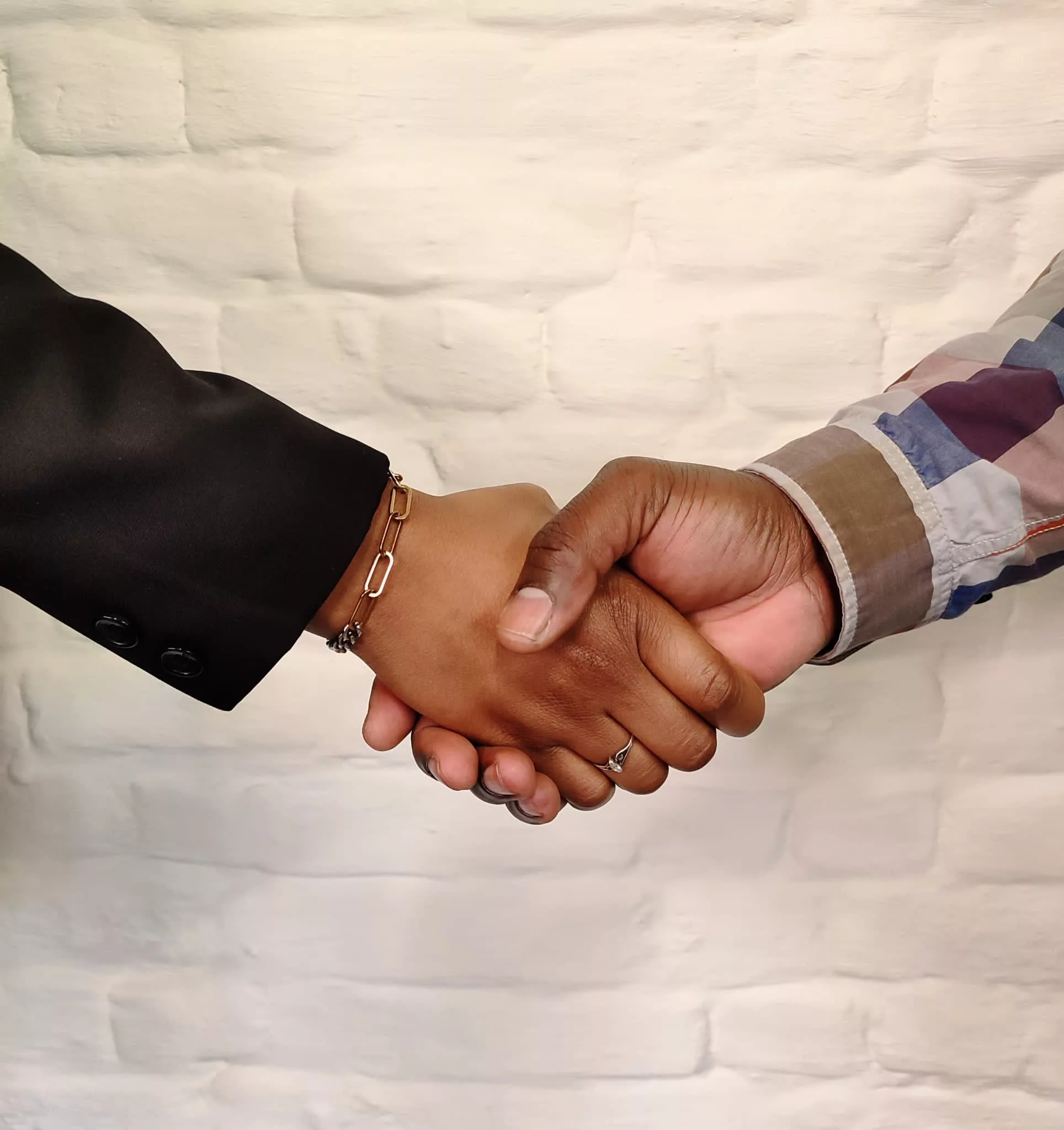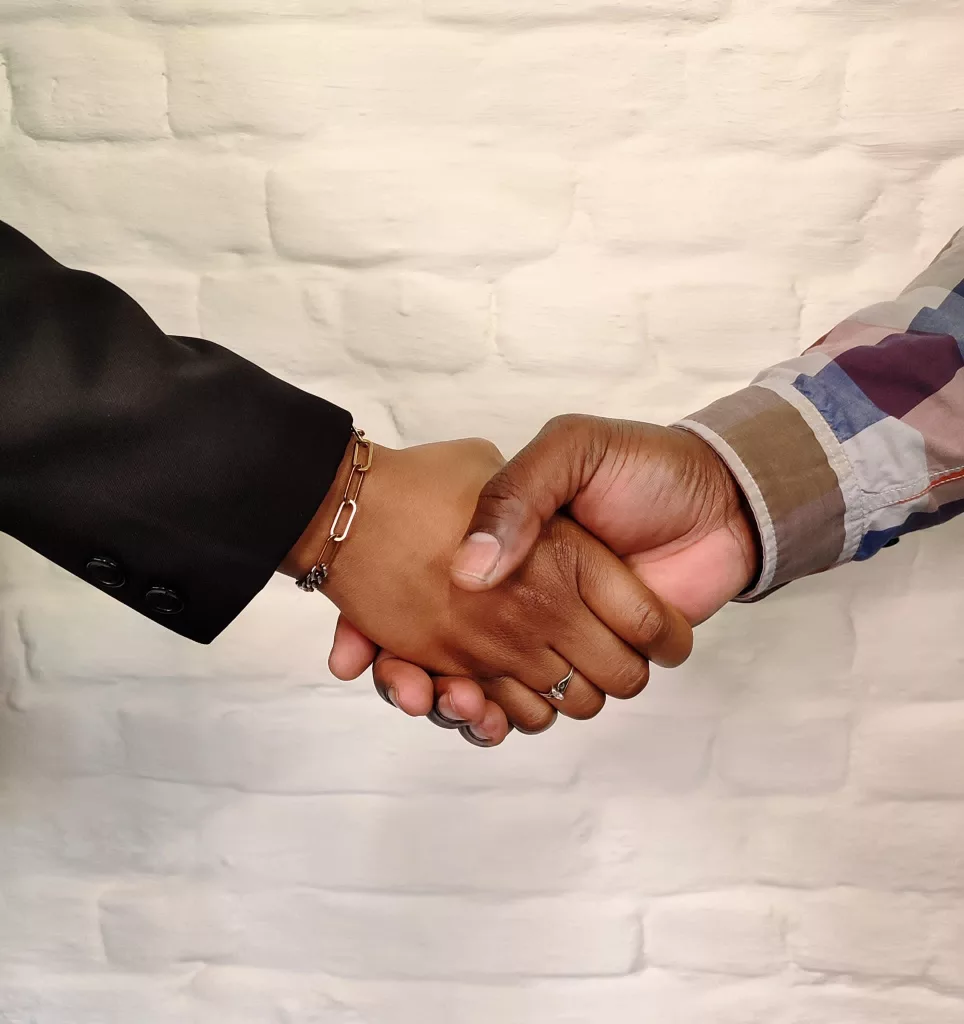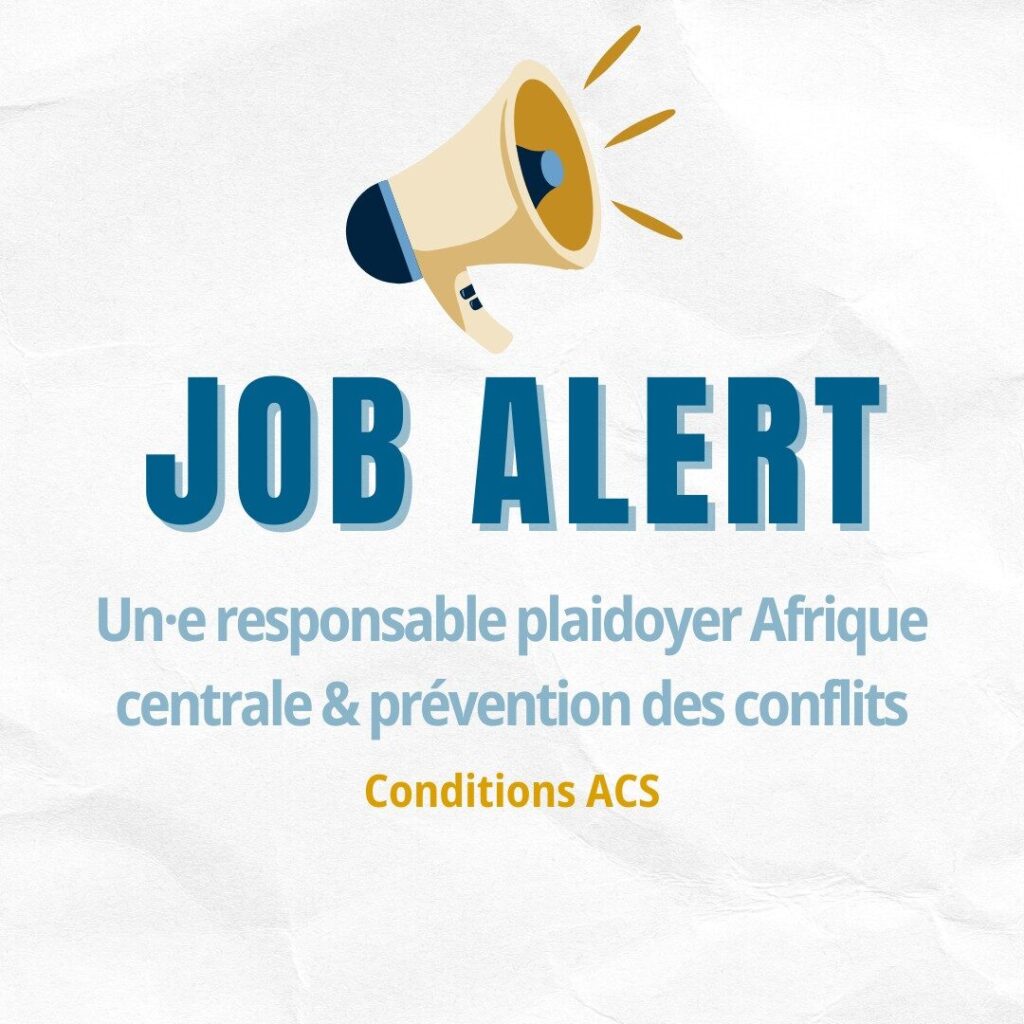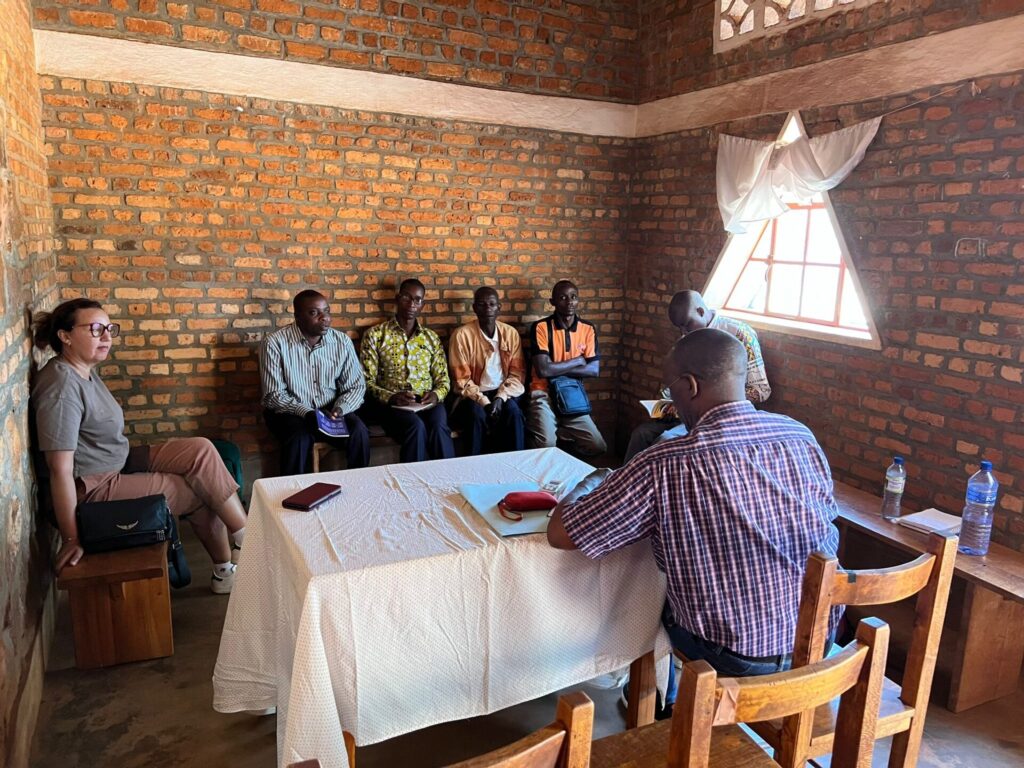The lack of representation of women in peace processes, is an obstacle to the resolution of conflicts and the establishment of lasting peace in the Great Lakes region. Therefore, it is important to focus on the integration of women at the highest decision-making levels.

A lack of representation of women in international peace processes
The participation of women in peace processes at the global level remains lower compared to that of men, although it is changing slowly. Indeed, according to UN Women Between 1992 and 2019, women represented on average 13% of negotiators and 6% of signatories in major peace processes around the world. In other words, 7 out of 10 peace processes did not include any female mediators or signatories.
Not only do these processes exclude women in decision-making, but also neglect their inclusion in strategies that could reduce conflicts and advance stability.
Emphasizing the inclusion of women during formal peace processes highlights the fact that women's participation in conflict prevention and resolution can have a positive impact before, during and after a conflict.
It is also noted that more recent peace efforts have struggled to include women. The latter were notably largely excluded from peace negotiations within the framework of the war in Ukraine.
Regarding official roles in discussions related to this war, only two women are observed: Iryna Gerashchenko and Olga Ajvazovska. They were part of the Ukrainian delegation during the peace talks. And on the Russian side, no women were present.
This lack of representation of women in the peace process remains an international problem. It is in this context that the United Nations Security Council adopted, on October 31, 2000, Resolution 1325 on women, peace and security. With this resolution, the UN requires its member states to systematically take into account the interests of women in peacekeeping and peacebuilding activities. It recognizes that peace, to be lasting, cannot be achieved withoutfull and equal inclusion of women.
This resolution includes several key points, including that which consists of increasing the number of women at all levels of decision-making. Also, involve more women in negotiations and peace agreements in national and international institutions and mechanisms. In this logic, the resolution also calls for appointing more women envoys and special representatives of the Secretary-General of the United Nations.
As the researcher and author Chineze J.ONYEJEKWE explained it, in 2002, as part of an extraordinary session: “the Security Council has encouraged greater consideration to be given to the study of the integration of an approach concerned with gender equity in conflict resolution and reconstruction”.
The United Nations Security Council therefore recommends that political actors take various measures that promote the participation and protection of women, and thus ensure the prevention of conflicts and the promotion of peace. This would be done as a matter of fairness, because there are as many men as women. The latter constitute half of the populations affected by the conflicts.
A lack of representation of women during the signing of peace agreements in the Great Lakes region
In Central Africa, particularly in the Great Lakes region, women are the most marginalized victims in armed conflicts. In particular, they undergo rape and sexual violence. During and after conflicts, they often find themselves widowed and, as a result, heads of households. This could mean that they are not expected in the search for peace. As Marguerite Mutuminka explains, president of COCAFEM[1], “Our culture favors men more than women. His speech is muzzled. And this is a continuing struggle so that women can speak up to provide solutions in times of war or disputes.".
In Rwanda, for example, after the 1994 genocide, women's organizations were the first to initiate dialogue in the different communities. Regarding Burundi, at the start of the negotiations in Arusha in 1996, there were only 2 women out of 126 participants. They had demanded and obtained an increase in female representation. In the 1980s, in Bukavu in DR Congo, women asked to be included in the process of negotiating peace and rebuilding the country. In response to this, governments have attempted to take greater account of the gender element in their governance policies.[2]
Women must participate in decision-making and negotiations at the highest levels so that they have a significant impact. In this logic, we can particularly mention the nomination in 2013 of Mary Robinson (former President of the Republic of Ireland), as United Nations Special Envoy for the Great Lakes region. This appointment gave hope for the emergence of a more important place for women at the highest decision-making level in peace processes. One of the objectives of his mandate was to emphasize the crucial participation of women in building lasting peace. According to Mrs. Robinson, no society can progress as much on social, economic and political levels if a part of its population is marginalized[3].
It is in this momentum that she will be at the initiative of setting up in 2014 the Women's Platform for the Framework Agreement for peace, security and cooperation for DR Congo and the region (ACPSC). This initiative was set up with the aim of meeting the needs for facilitation and coordination in the contribution of women's organizations to the implementation of the Framework Agreement.
The Framework Agreement for Peace, Security and Cooperation for DR Congo and the Region (ACPSC)
It is necessary to dwell on the ACPSC because it is a major agreement in establishing peace in the Great Lakes region in general. The main objective of this agreement is to advance the peace and reconciliation process. The Framework Agreement has been ratified by eleven countries in the region and four international organizations. It is interesting here to analyze the place of women in the ACPSC and the negotiations leading to its signing, as well as the effectiveness of their participation in the peace process.
We note that women in DR Congo remain particularly excluded from political decision-making processes, and from efforts relating to the peace process in the Great Lakes region.
This could be explained firstly by the persistence of sociocultural norms which attribute to men a position of authority in the home. In addition, we can mention the insecurity and instability which increase gender inequalities.
Thus, the process which led to the signing of the Framework Agreement effectively sidelined Congolese women and, overall, those in the region. Looking at the number of women present at the signing of the Framework Agreement, we see that out of 11 signatories, there were exclusively men. Furthermore, among the 4 witnesses present, there was only one woman (Nkosana Dlamini Zuma, Chairperson of the African Union Commission)[4]. However, women should, just as much as men, be found at all decision-making levels in peace processes.
Most often in peace talks, we notice that women usually play a simple consultative or observation role, and in particular through civil society organizations. Women are rarely given decision-making positions, which results in the invisibility of their opinions and proposals. These are very generally not taken into account when signing.
Following this observation on the low representation of women in peace negotiation processes, it is necessary to present avenues for the inclusion of women.
Some avenues for including women in the negotiations of peace processes in the region
We observe through this analysis that it is obvious that taking into account female participation is an important element in any peace process.
Given the relevance of resolving conflicts in the Great Lakes region in a sustainable manner, it is fundamental to broaden the concept of gender in peacebuilding.
This could first of all be done at a national or even regional level, by integrating women at the highest level of institutions, in positions of responsibility. It is therefore not enough to reserve only themes around gender issues or childhood. Women should not only be in positions where they are only witnesses or observers. They must be protagonists in peace discussions and signings. This would be illustrated around the same reasoning as that of the appointment of Bineta Diop as special envoy of the African Union for women, peace and security. This indeed shows progress.
It would also be necessary to establish a more effective platform for women to implement and monitor regional agreements. This could take the form of an advisory committee[5], through organizations like COCAFEM. Thus, it may be important to recognize informal mediation efforts at the local level as an integral part of peace processes. We actually see that women play a daily role in the Great Lakes region.
Par ailleurs, l’inclusion des femmes dans les négociations et processus de paix dans la région doit aussi être appuyée à un niveau international. Cela peut passer par l’incitation au respect des normes internationales sur les questions concernant les femmes, la paix et la sécurité. Le Conseil de sécurité de l’ONU pourrait notamment s’assurer de la bonne mise en place de la Résolution 1325 par les gouvernements nationaux. Il pourrait y avoir une obligation de ces derniers de fournir des action planss national où seraient indiquées précisément les mesures que ces gouvernements mettent en place afin d’assurer le respect des obligations de la Résolution. Les associations belges également, pourraient soutenir les organisations féminines de la société civile locales, afin qu’elles puissent avoir un impact majeur dans les prises de décisions.
Keren Chatat.
[1] COCAFEM is the Concertation of Collectives of Women's Associations of the Great Lakes Region, created in 2001 by women's organizations from three countries: Burundi, DR Congo and Rwanda.
[2] Tukumbi Lumumba-Kasongo (2017). Peace, security and post-conflict reconstruction in the Great Lakes region of Africa, P.22.
[3] Reilly, N. and Warren, R. (2014). Leadership and participation of women in the Framework Agreement for Peace, Security and Cooperation for Peace, Security and Cooperation for the Democratic Republic of Congo and the Great Lakes Region: Results, Obstacles and Opportunities, p.6.
[4] Cano Vinas, M. (2015). Gender audit of the Framework Agreement for Peace, Security and Cooperation for the Democratic Republic of Congo and the region. International Alert & Kvinna till Kvinna Foundation, p. 26
[5] Ibid, p.43.






